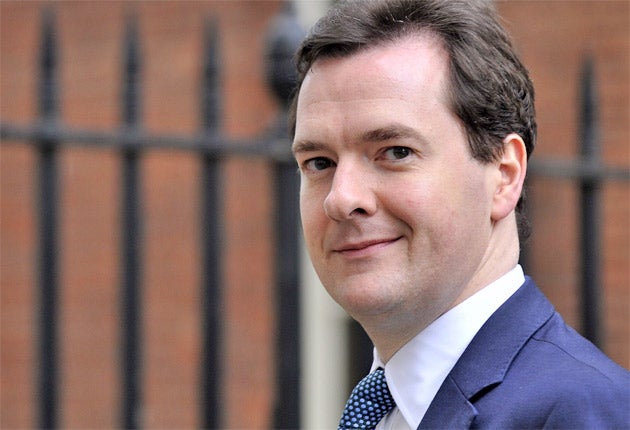Low growth figure suggests economy is stagnating – at best

Superficially respectable growth figures disguise an economy that is stagnating, at best, or even contracting again, according to the latest data from the Office for National Statistics.
Click HERE to upload graphic (95k jpg)
Although the economy formally grew by 0.5 per cent in the first quarter of 2011, in line with expectations, this was widely regarded by analysts as confirmation that the underlying recovery is fragile at best, and that the economy has escaped a relapse into a "double-dip" recession only by the narrowest of margins.
The figure was also the final confirmation most City observers needed to rule out an interest rate rise by the Bank of England next month. The betting now is on an increase in the Bank Rate in August or as late as November. And growth could yet slow further: the bulk of the Government's programme of fiscal tightening has only just begun to kick in, while inflation continues to erode the spending power and confidence of families. Firms are also showing caution over investment plans.
Output in the economy grew by 0.5 per cent in the first three months of this year compared with the end of 2010, says the ONS, but much of the increase was an "arithmetic" effect signalling that the economy has recovered from the extremely cold weather last December, which helped push the economy down by 0.5 per cent.
The overall picture now, says the ONS, is one of "broadly flat" growth over the past six months, in contrast with the relatively strong recovery seen in the middle months of last year. Manufacturing is performing relatively strongly, transport and the leisure sector bounced back from snows, but construction is weak.
David Cameron told MPs that "it's clearly a success the economy is growing", responding to claims at Prime Minister's Questions by the Leader of the Opposition Ed Miliband that the economy is "flatlining".
However, analysts explained that neither view represents the full picture. That's because the economy "should" have expanded by 1 per cent if the output lost up to December had been recovered in January, February and March, if the underlying level of production had remained constant.
Thus, if a factory normally produces 100 units of output per quarter, and found its production reduced to nil as a result of the snows in the last quarter of last year, then its output in the first months of this year "should" be 200 units, comprising 100 units postponed from October to December last year, plus the "normal" level of 100 units for January to March.
By this analogy, the economy "should" have expanded by 1 per cent in the first quarter if the activity lost to snow had been made up and underlying levels of activity had been maintained. Given the economy only grew at half this rate, and common sense dictates that there must have been some "catch-up" in output, such as delayed deliveries from December to January, that implies a fall in the underlying level of activity.
Harry Duff, statistician at the ONS, confirmed: "If there was any catch-up then the underlying picture is negative." Although few economists expect the economy to contract again this quarter, it suggests the UK has just escaped a double-dip recession – two successive quarters of negative growth.
Howard Archer of IHS Global Insight added: "This kills off any lingering prospect that the Bank of England could raise interest rates next week. We are putting back our expectation for the first interest rate hike to November from August."
Official sources conceded growth was below the 0.8 per cent forecast by the Office for Budget Responsibility, but pointed to the very volatile construction sector, which, had it not contracted by almost 5 per cent in just three months, would have left the economy matching the OBR number.
Many City economists now expect a 1.4 per cent growth rate this year, compared with the 1.7 per cent official forecast, which will force higher government borrowing.
Join our commenting forum
Join thought-provoking conversations, follow other Independent readers and see their replies
Comments